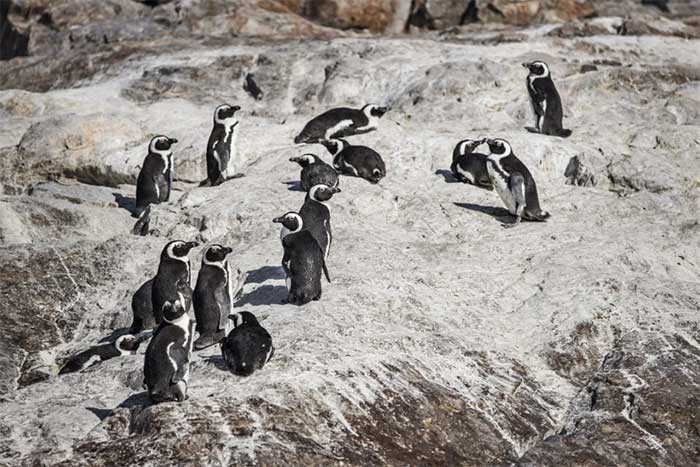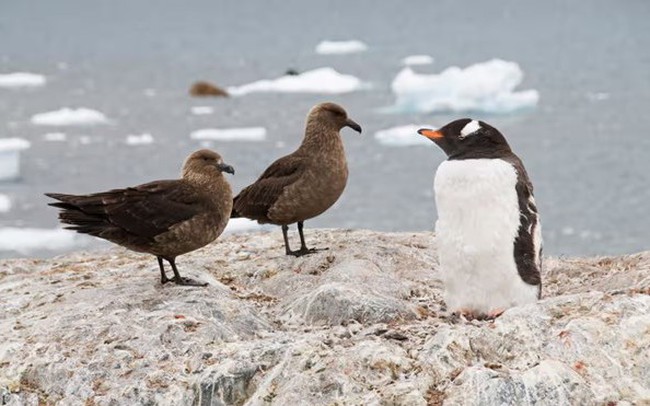Researchers discovered the bodies of 35 penguins in the Falkland Islands in the South Atlantic on January 19, two of which tested positive for the H5N1 virus.
According to the Scientific Committee on Antarctic Research (SCAR), the H5N1 avian influenza virus strain has been found in Gentoo penguins for the first time , raising concerns that the virus could spread among penguin colonies in Antarctica. Antarctic.

The H5N1 avian flu virus has been found in Gentoo penguins. (Illustration photo: AFP/TTXVN).
Veterinarian Ralph Vanstreels at SCAR said researchers discovered the bodies of 35 penguins in the Falkland Islands in the South Atlantic on January 19. Samples collected from two of these penguin carcasses tested positive for the H5N1 virus.
Falkland Islands government spokeswoman Sally Heathman confirmed that as of January 30, more than 200 young Gentoo penguins and a number of adults died in similar conditions.
That number shows that Gentoo penguins are susceptible to this deadly disease and that the H5N1 virus has been devastating bird populations worldwide in recent months.
Currently, the archipelago government is also waiting for the results of testing samples of Rockhopper penguins and is planning to respond to a large-scale outbreak caused by hundreds of thousands of penguins gathering densely in the South. Pole and neighboring islands are one of the factors that increase the risk of spreading the H5N1 virus.
However, veterinarian Vanstreels, who is also a researcher with the University of California-Davis, emphasized that Gentoo penguins rarely move between the Falklands Islands off the coast of Argentina and the Antarctic Peninsula, located far from shore. 1,300km to the South. This means there is no possibility of the bird flu virus spreading south of Antarctica.
On the same day, the head of SCAR’s Antarctic Wildlife Care department Meagan Dewar said that in neighboring South Georgia, authorities have denied information that suspected bird flu appeared in king penguins after a detailed survey of this area.
Meanwhile, Mr. Vanstreels reflected that conservationists are also interested in many other animals.
Notably, a large number of elephant seals and fur seals have died from avian influenza infection in South Georgia following a mass mortality of these species in South America.
According to him, this is especially worrying because South Georgia is home to 95% of the world’s Antarctic fur seal population. If that population declines significantly, the species will become endangered.
- March 2012: Launch of H5N1 vaccine for poultry
- Air purifiers eliminate 99.9% of H5N1 virus
- The mutated H5N1 virus can be transmitted from pigs to humans






